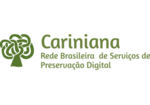Integrated stem teaching or scientific disciplines teaching?
DOI:
https://doi.org/10.4025/rvc.v2i1.63580Keywords:
Integrated teaching, Scientific field, Teaching by subjectsAbstract
The controversy generated in some communities in Spain by the implementation of a system for the teaching of science in the first stage of Compulsory Secondary Education (ESO), based on the idea of "Scientific Field" instead of subjects and the possibility that, far from being an exceptional measure of a one-off nature because the COVID19, it will continue or be extended under the new Education Law (LOMLOE), is an issue in which we, as teachers, researchers, and citizens, feel obliged to participate. It is a matter of great importance, which affects or may also affect other countries, which fundamentally has two sides: the socio-political and the scientific-educational. In this paper, both are briefly commented.
Downloads
References
AKERSON, V.L.; BURGESS, A.; GERBER, A.; GUO, M.; AHMED KHAN, T. & NEWMAN, S. Disentangling the Meaning of STEM: Implications for Science Education and Science Teacher Education. Journal of Science Teacher Education, v. 29, n.1, p. 1-8, 2018.
BRANSFORD, J.; BROWN, A & COCKING, R. (eds). How People Learn: Brain, Experience and School (expanded edition). National Academy Press. 2000.
CARRASCOSA, J.; DOMENECH, J.; MARTíNEZ, J.; OSUNA, L.; VERDÚ, R. Curso básico de Didáctica de las Ciencias. Enseí±anza secundaria. Profesorado de ciencias en formación y en activo. 2014. Accesible en pdf en: didacticafisicaquimica.es
CARRASCOSA-ALíS, J.; MARTíNEZ, S.; ALONSO, M. Competencia Científica y Resolución de Problemas de Física. Revista Científica, v. 38, n.2. 2020. https://doi.org/10.14483/23448350.16211
DOMíˆNECH-CASAL, J. STEM: Oportunidades y retos desde la Enseí±anza de las Ciencias. Revista de Cií¨ncies de l´Educació, v.1 n.2, p. 154-168, 2019.
FENSHAM, P.J. Beyond Knowledge: Other Scientific Qualities as Outcomes for School Science Education. En R.M. Janiuk y E. Samonek-Miciuk (Eds.), Science and Technology Education for a Diverse World–dilemmas, needs and partnerships. International Organization for Science and Technology Education (IOSTE). XI Symposium Proceedings (p. 23-25). Lublin, Polland: Maria Curie-Sklodowska University Press. 2004.
GIL PÉREZ, D. El currículo de ciencias en la Educación Secundaria Obligatoria: ¿Írea o disciplinas? Infancia y aprendizaje, n. 65, p. 19-30. 1994. Accesible en ResearchGate
GIL PÉREZ, D.; CARRASCOSA, J.; FURIÓ, C.; MARTíNEZ TORREGROSA, J. La enseí±anza de las ciencias en la educación secundaria. ICE/ Universidad de Barcelona. Barcelona: Horsori. 1991. Accesible en ResearchGate y en didacticafisicaquimica.es
MARTíNEZ-TORREGROSA, J. ¿Aprender y enseí±ar ciencias o “cosas de cienciasâ€? Infancia y Aprendizaje, v.17, n.1, p. 39-43 https://www.researchgate.net/publication/247714032_Aprender_y_ensenar_Ciencias_o_cosas_de_las_Ciencias_Learning_and_Teaching_Science_or_Science_Things
MILLAR, R.; DRIVER, R. Beyond processes. Studies in Science Education, n. 14, p. 33-62, 1987.
REISER, B, J. What Professional Development Strategies Are Needed for Successful Implementation of the Next Generation Science Standards? K-12 Center. Invitational Research Symposium on Science Assessment. 2013. ROCARD, M; CSERMELY, P; JORDE, D; LENZEN, D; WALWERG-HENRIKSSON, H; HEMMO, V. Science Education Now: A Renewed Pedagogy for the Future of Europe. European Commission. Community Research. 2007. http://ec.europa.eu/research/science- society/document_library/pdf_06/report rocard-on-science-education_en.pdf
SOLBES, J.; MONTSERRAT, R.; FURIÓ, C. El desinterés del alumnado hacia el aprendizaje de la ciencia: implicaciones en su enseí±anza. Didáctica de las Ciencias Experimentales y Sociales, n.21, p. 91-117. 2007. VÍZQUEZ, A.; MANASSERO, Mª. A. El declive de las actitudes hacia la ciencia de los estudiantes: Un indicador inquietante para la educación científica. Revista Eureka sobre Enseí±anza y Divulgación de las ciencias, v. 5, n.3, p. 274-292, 2008.
YUS, R.; FERNÍNDEZ, M.; GALLARDO, M.; BARQUíN, J.; SEPÚLVEDA, P.; SERVÍN, MJ. La competencia científica y su evaluación. Análisis de las pruebas estandarizadas de PISA. Revista de Educación. Ministerio de Educación y Formación Profesional espaí±ol. 2013. DOI: 10.4438/1988-592X-RE-2011-360-127













